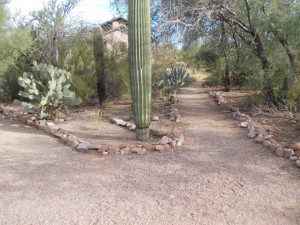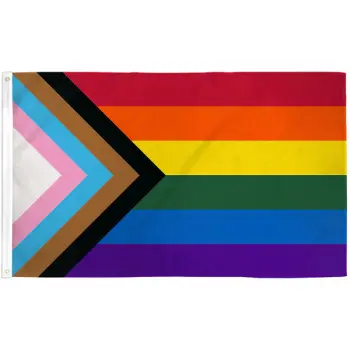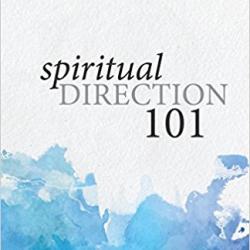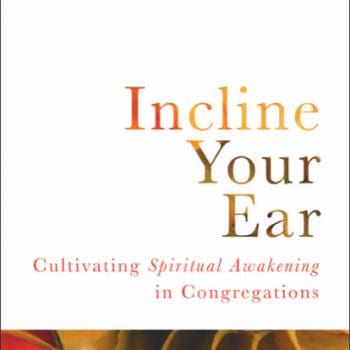Discernment tops the list of reasons people seek spiritual direction. People who want to do the right thing and those who are committed to a set of values and beliefs in life constantly wonder about the choices in front of them. In spiritual direction, we assist you in exploring those choices so that you make the one or ones that are faithful to your understanding of God.
These books may also help. I’ve placed them in three categories because principles of discernment—as taught to spiritual directors in formation programs—historically come from two traditions within Christianity: Quakers and Jesuits. The third category I’m adding is eclectic, which means a blend of those traditions and others.
The Quaker Books
Quaker spirituality centers around silence and listening for an inner voice, insight or understanding that points the way.
Sacred Compass by Brent Bill is a beautiful, small and easy to read book on spiritual discernment as practiced by Quakers. Bill describes how Quakers may respond to an invitation by saying “as way opens” instead of a firm yes or no. “As way opens implies a deep way of developing our spiritual insight, making major decisions and planning,” says Bill (Pg 1). This way may take many paths, which is why it is important to spend time with God in silence daily to quiet your mind, body and spirit in order to hear, feel or see the way. This book is a great introduction to discernment for anyone interested in the practice, especially if you have not really encountered Quaker spirituality before.
Practicing Discernment Together by Lon Fendall, Jan Wood and Bruce Bishop. Also from a Quaker perspective, this book is a series of essays and case studies describing discernment and showing how it can be practiced within organizations. “Group discernment transcends the need to play politics, persuade others to our views, or engage in battles over the interpretation of Scripture versus. It refuses to marginalize those who stand in a different place, as they too are listening.” (Pg 128) Because of its language, this book is best suited for churches and Christian organizations, especially those who prefer a more prayerful way of making decisions.
The Ignatian (Jesuit) Books
Jesuit spirituality is an outgrowth of the writings of St. Ignatius of Loyola (mid-1500’s) who worked with individuals using his Spiritual Exercises method of spiritual direction. If you are interested in reading Ignatius’ words on the matter, you can find the Spiritual Exercises still published by Image Classics. However language and the understanding of women’s roles in society have changed greatly since the mid-16th century, so I prefer more modern renditions and explanations of discernment as taught by Ignatius. These books will give you the best of what Ignatius has to offer—which is a gold mine on the topic of discernment.
Discernment: The Art of Choosing Well by Pierre Wolff. This is the textbook on Ignatian spiritual discernment used in many spiritual direction formation and training programs. Wolff explains how discernment is about seeing reality clearly and making choices out of freedom (not inner misunderstood compulsions) and in alignment with our religious faith. He puts the Ignatian discernment principles in easy contemporary language and includes a section in the back of the book on how to use these principles in situations where you would not want to use religious language, such as with a person for whom religious language is upsetting or in a workplace where it would not be welcome. This is my choice for an introductory book on Ignatian spiritual discernment, although you will find many other ones that will espouse the exact same principles. Such as the next three I will describe.
Many progressive Catholics have sought to translate Ignatius’ teachings for non-Catholics and feminists. I keep mentioning women because Ignatius has some passages in his Spiritual Exercises that make most women groan—in one case he describes the devil being like a female temptress! However you will find none of that talk in these fine books.
The Discerning Heart by Wilkie Au and Noreen Cannon Au is a theological and psychological understanding of Ignatian discernment. The Aus are particularly interested in getting our bodies into the work of discernment. They have exercises and offer examples of how we can listen to the wisdom of God within our bodies. This is a great companion book to Wolff’s.
The Discerning Heart: Discovering a Personal God by Maureen Conroy takes an experiential point of view on discernment. Conroy, a Catholic sister and spiritual director, offers case studies and verbatim write-ups to illustrate how St. Ignatius’ Spiritual Exercises are helpful in spiritual direction today. This book is very concrete and feels academic at times. It has a decidedly Catholic flavor as well. I recommend it for spiritual directors who want to deepen their practice of helping others discern.
The Way of Discernment: Spiritual Practices for Decision Making by Elizabeth Liebert. I’m biased here because Dr. Liebert was my professor of Christian spirituality when I was at San Francisco Theological Seminary. But bias aside, this is an amazing explanation of discernment by a masterful teacher who has been teaching discernment to clergy and lay persons for over 30 years. Liebert knows how to make the principles of discernment come alive on the page. Each chapter includes a spiritual practice that is helpful for each step of discernment. Every spiritual director could use this book.
The Eclectic Books on Discernment
These three books are my classic “go to” books on discernment—each for different reasons. The authors of these books all know the historical traditions of discernment and incorporate them into their works such grace and ease that you don’t really notice the history unless you have steeped yourself in it from earlier books! These are books I’m most likely to recommend to directees or seekers who are not as interested in whether something is from a Quaker or Jesuit tradition—they just want a good read on discernment.
Holy Play by Kirk Byron Jones is an Andover-Newton professor’s answer to The Purpose Filled Life. Jones’ writing is witty, insightful and full of joy. His purpose is to help us begin to see God as a divine partner in discernment and not a domineering parent. His method is to have us dream our God-given desires and then joyfully pursue a life based on them. Although he’s an academic, this book is written so well that everyone from a beginner along the spiritual path to the wise old spiritual guide can enjoy and appreciate it. How many ways can I say I love this book? I have used it with people in vocational discernment and I recommend it wholeheartedly, especially to directees who come from theological backgrounds that leave them afraid of a punishing God. An added bonus is that Kirk Byron Jones is an African American pastor from an evangelical background—a welcome and diverse voice in a field that has been dominated too long by European-Americans.
What God Wants for your Life: Finding Answers to the Deepest Questions by Frederick Schmidt. Spiritual retreat leader and Episcopal priest Fred Schmidt invites us to move from asking “I-questions” in discernment and begin focusing on “we-questions” and “God-questions.” There is a good chapter on new ways of understanding the will of God, and an outstanding chapter that puts a discerning eye to our need for “signs and wonders” from God in discernment. In my opinion, the signs and wonders chapter alone is reason enough to buy the book. So many Christians (and many of the New Age persuasion) are too reliant on signs, looking for flashy miracles or great moments of perfect clarity. Schmidt contends this penchant is rooted in a search for certainty and that search may keep us from taking action we need to take right now. This is a well-thought out book helpful for anyone interested in discernment but especially those who are desperately seeking the “perfect will of God.”
And last but in no way least,
Listening Hearts: Discerning Call in Community by Suzanne Farnham, Joseph Gill, Taylor McLean and Susan Ward. You would think a book written by a committee would be a hot mess, but when it comes to this book you would be dead wrong. This group of discerners met for over two years, did many hundreds of hours of research, met to pray about every word, phrase and sentence, and tested the subject matter on numerous spirituality groups before going to print. The dedication to creating a timeless book about discerning one’s call in community paid off. This is as much a classic on discernment as Pierre Wolff’s book, espousing many of the same concepts but done with an eye toward people finding God’s desire for their life in the company of others. So, if you are a person considering a call to ministry; a spiritual director who works with people discerning their vocation (of any kind); or a church that sponsors people heading to seminary—get this tiny nine-chapter book. Read it, savor it, and follow the Appendix guidelines for assisting people in discernment. This book has spawned a whole movement with retreats, consultants and the like. You can read more about it at www.listeninghearts.org.
For more about spiritual direction as I practice it, please check out my website.













